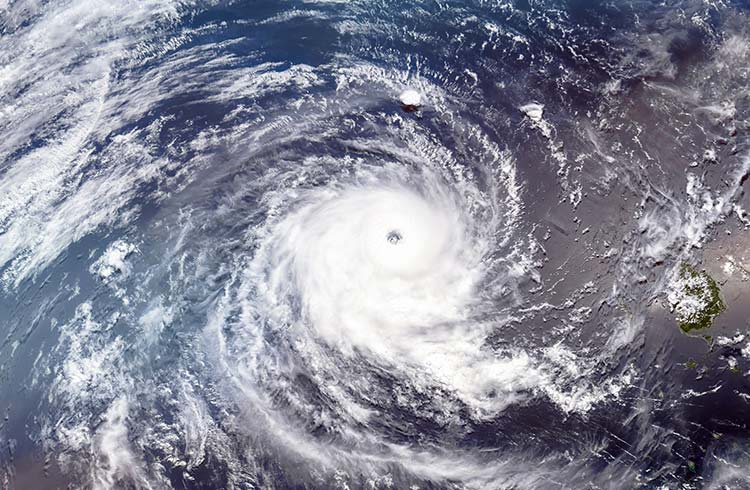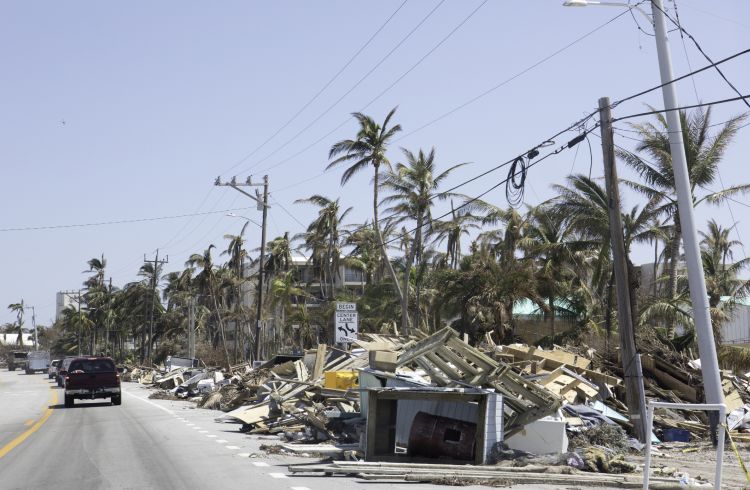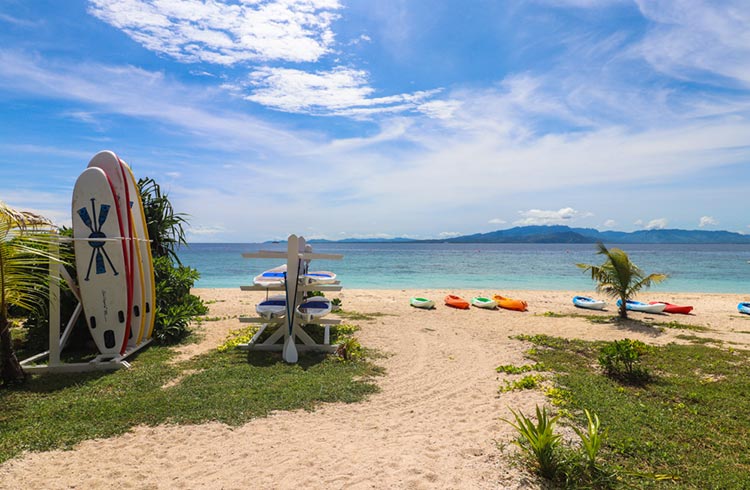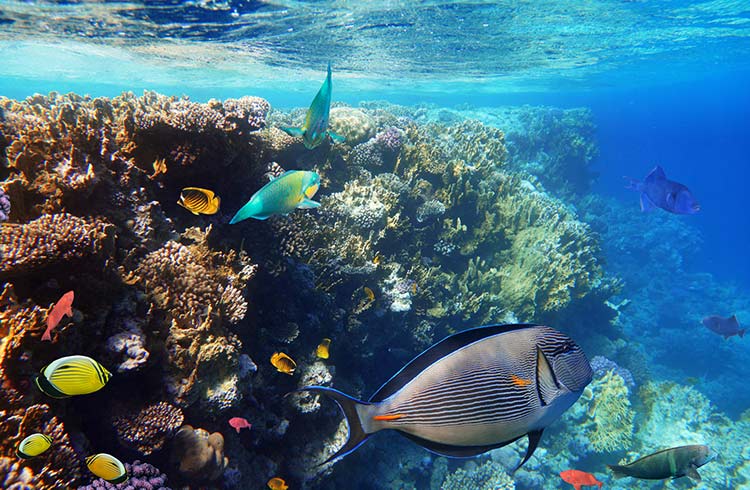Cyclone Safety in Fiji: How to Stay Safe in Wild Weather
Cyclone season runs from November to April in Fiji. Here are our top tips to stay safe and be prepared during the wet season in Fiji.
 Photo © Getty Images/Elen11
Photo © Getty Images/Elen11
Cyclones (hurricanes and typhoons to those in the northern hemisphere) are unpredictable by their nature, and it pays to be prepared. If you're traveling to Fiji between the months of November and April, it's important to know the meaning behind "cyclone watch" and "cyclone warning" – this could be the difference between being prepared to evacuate and evacuating immediately.
Fiji has a decent history of cyclones, with many causing widespread destruction and displacing thousands from their homes.
Fiji lies in the South Pacific cyclone belt and over the decades has been struck by multiple Category 4 and 5 tropical cyclones that caused widespread destruction, flooding and landslides. Notably, Cyclone Winston (February 2016) made landfall in Fiji as a Category 5 storm with sustained winds up to ~185 mph, making it one of the strongest storms ever to hit the Southern Hemisphere. OVer 40 people died and entire villages were swept away.
- Preparing for a cyclone in Fiji
- Understanding cyclone warnings in Fiji
- What do I do if I am in Fiji during a Cyclone?
- Be informed about cyclones
Preparing for a tropical cyclone in Fiji
Luckily, Fiji is well prepared for cyclones. There are community shelters and major resorts have solidly-built substantial buildings. The problem comes with the smaller resorts on the outer islands. The timber and palm-fringed buildings have loads of charm, but they‘re not where you want to be when a big storm comes through. If the staff tell you its time to leave and go back to the mainland, they mean it. Always follow the instructions of the locals or your accommodation staff.
If you are on a smaller island, plan to evacuate to the mainland as soon as it is confirmed the island is in the firing line of the cyclone. Small planes and ferries may not operate in severe weather, including weather leading up to the cyclone hitting. It may be worth buying a flexible/refundable plane ticket should you get stuck.
Most of the damage from a cyclone comes not from the strong winds, but the floods. Sometimes the tropical depression doesn‘t quite make it to cyclone strength, but it brings enough torrential rain to soak the islands and cause rivers to burst their banks. This is where most of Fiji‘s disease problems come from. It‘s hard to build a sewage system which can handle 150mm (6 inches) of rain in six hours.
Understanding cyclone warnings in Fiji
It‘s important to check with local media and keep an eye on weather reports. There are a few stages in the warning system, and you should understand them if you're traveling to a tropical destination.
A Tropical Depression is the first sign a cyclone might form. If it worsens further, it may be declared a cyclone, and given a name. Fiji uses the Australian cyclone scale with 5 levels. 1 is the weakest (wind speeds 39 – 54 mph) and category 5 is the strongest (wind speeds greater than 124 mph).
The Fiji Meteorological Service and MetService New Zealand monitor all cyclone activity in the Pacific with assistance from Australia and the United States. Meteorologists will draw up what they call a five-day forecast cone. This is a map of where they think the cyclone could be over the next five days, and the areas that could be affected by storm strength winds. It‘s shaped like a cone because the exact path is unpredictable. These cones will be updated frequently and travellers should download weather apps to follow the storm path.
Cyclone watch
If you are told there‘s a cyclone watch on your position, it means gale force winds are expected within 48 hours, but not within 24 hours.
Cyclone warning
Cyclone warning means the gale-force winds will be on you within 24 hours, or are already happening.
What do I do if I am in Fiji during a Cyclone?
- If the resort or hotel staff tell you to evacuate, follow their advice
- If you decide to stay, make sure you have plenty of bottled water, and non-perishable food. The power may be out for an unknown period of time. Ask the staff to provide you with candles and torchlight
- Stay in a central room, or as far away from windows as possible
- Don‘t venture out of your room or the central shelter. Flying debris is one of the biggest killers in a cyclone
- Staff may suggest everyone gathers in a central, secure shelter. It could be a good idea to be with people who‘ve experienced previous cyclones
- Don‘t go to look at the crashing waves, it‘s very easy to be knocked off your feet by the force of water and washed-out to sea
- Be aware there may be a storm surge (especially if the storm coincides with high tide). Sea water could come much further than you‘re used to
- Don‘t swim in rivers lakes or lagoons after the cyclone passes. Rising flood waters usually swamp the sewage system (erk!).
Be informed about cyclones
Okay, that‘s the bad stuff about cyclones, but the effects can be surprisingly localised. In 2010 as Tomas raged to the north-east of Viti Levu, to the north-west and just 205mi (330km) from the eye of the storm, the Plantation Island resort in the Yasawa and Mamanuca group said they had one brief rain shower, a breezy day, a calm lagoon and 300 guests continuing to enjoy their holiday.
Being well-informed means you‘re less likely to over-react. But remember, if you don‘t feel comfortable with the situation, make the decision to leave as early as possible. There‘s nothing worse than checking out of your hotel and then being stranded when the airport is closed by bad weather.
Related articles
Simple and flexible travel insurance
You can buy at home or while traveling, and claim online from anywhere in the world. With 150+ adventure activities covered and 24/7 emergency assistance.
Get a quote


9 Comments
Just wanted to say, that ive been wanting to go to fiji for years, and ive been doing a lot of research about it. This makes me feel a lot better now, now that i know what to do if something bad is actually about to happen. Hopefully see you in 2017 fiji!!! xxxxxx
Hi Gabrielle, I am going there in march this year. If you would like to come.
You're welcome!
I'm here in Nadi Fiji right now - this Cyclone Winston is coming and it appears to late to get out - I'm staying at the Hilton in Denariu - everyone here seems so calm and collected like it's no big deal, but I'm a little nervous - good advice - I'll let you know how it goes ---- our room is beautiful, only issue is all glass windows to ocean - not sure what to do about that really - maybe they put us in a shelter or something
My prayers to all facing this Storm. I was planning a trip to Fiji in June when the tornado season blows over. It's doubtful I'll visit this year while Fiji is in recovery mode after such a horrific tornado. Blessings to all keep strength and Fiji spirit alive.
Sorta wanted to know how often they occur?
what are some possible solutions in fiji to cause the effects
I would like to go to fiji for2019 for Christmas what does anyone recommend k
Hi Kris, December to March is the rainy season in Fiji. I have been working in Fiji for five years. Better visit after April or before November. Instead you may visit Sri Lanka the country where I am living. Rgds, Kumar
I am flying to Nadi 12th to 19th March this year. Seen there has been some very bad weather past few weeks. I apprecaite I will be going in " rainy season " But have been told it rains for a few hours in the afternoon and its still warm and sunny most of the time. Looking to relax, sun bathe but also do boat trips to smaller islands. Is all this still possible this time of year? Thanks in adance.